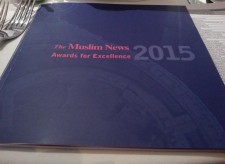In alphabetical order) Abdul Majid, 45, Abdul Malik, 30, Abul Hashim, 25, Abulu, 17, Dil Mohammed, 35, Habizu, 40, Nur Mohammed, 29, Rashid Ahmed, 18, Shaker Ahmed, 45 and Shoket Ullah, 35 lined up in a row, kneeling and bound, minutes later the were hacked by knives, beheaded and at shot (Photo: courtesy Reuters)
The United Nations has described the details of a Reuters exposé into the massacre and mass burial of 10 Rohingya Muslim men in Myanmar as “alarming” and said it showed an urgent need for a thorough investigation into the violence in the country’s Rakhine State.
“We’re aware of this latest report, the details of which are very alarming. This once more attests to the need for a full and thorough investigation by the authorities of all violence in Rakhine State and attacks on the various communities there,” UN spokesman Farhan Haq told reporters last week.
On February 13 the United States described Myanmar denials of ethnic cleansing of Rohingya Muslims as “preposterous” as it called on the UN Security Council to hold the military accountable and pressure de facto leader Aung San Suu Kyi “to acknowledge these horrific acts that are taking place in her country.”
“Powerful forces in the Burmese government have denied the ethnic cleansing in Rakhine State,” US Ambassador to the United Nations Nikki Haley told the Security Council.
“To make sure no one contradicts their preposterous denials, they are preventing access to Rakhine to anyone or any organization that might bear witness to their atrocities, including the United Nations Security Council,” Haley said.
Reuters ‘Massacre in Myanmar’ released on February 8 includes three disturbing photographs of the killings, as well as, for the first time, testimonies by Buddhist villagers who ‘confessed to torching Rohingya homes, burying bodies and killing Muslims’ at the behest of the Myanmar army.
The US State Department has also called for the release of two journalists who were arrested while investigating the massacre in Inn Dinn village south of Rakhine State, located on the coast of the Bay of Bengal on the western margin of Myanmar.
Reuters says its report marks the first time soldiers and paramilitary police have been implicated by testimony from security personnel themselves. Members of the paramilitary police gave Reuter’s insider descriptions of the operation to drive out the Rohingya from Inn Din, confirming that the military played the lead role in the campaign.
Three photographs by a Buddhist villager capture key moments in the massacre, from the men’s detention by soldiers on September 1, 2017, to their execution the following day. Two photographs show the 10 captives lined up in a row, kneeling and bound. The final photograph shows the men’s bodies piled in the shallow blood covered grave, with their heads smashed and severed.
The victims – five fishermen, two shopkeepers, two teenage high school students and one Islamic teacher – were identified by their relatives in a refugee camp in Bangladesh.
US State Department spokeswoman, Heather Nauert, said, “As with other, previous reports of mass graves, this report highlights the ongoing and urgent need for Burmese [Myanmar] authorities to cooperate with an independent, credible investigation into allegations of atrocities in northern Rakhine.”
“Such an investigation would help provide a more comprehensive picture of what happened, clarify the identities of the victims, identify those responsible for human rights abuses and violations, and advance efforts for justice and accountability,” she added.
Reuters reporters Wa Lone and Kyaw Soe Oo were arrested on December 12 for obtaining confidential documents and have accused them of violating the country’s Official Secrets Act. Despite growing international calls for their release, the judges have denied bail to the reporters until their hearing on February 14.
The military issued a statement on January 10 that confirmed portions of the reporter’s findings. The military acknowledged that 10 Rohingya men were massacred and that Buddhist villagers attacked some of the men with swords and soldiers shot the others dead.
However, the military contradicted important accounts provided by both Buddhist and Muslim witnesses. According to the military, the ten men were part ‘of 200 “terrorists” that attacked security forces. Soldiers decided to kill the men, the army said, because intense fighting in the area made it impossible to transfer them to police custody. The army said it would take action against those involved.
However, Buddhist villagers, ‘reported no attack by a large number of insurgents on security forces in Inn Din’ and that soldiers plucked the 10 from among hundreds of men, women and children who had sought safety on a nearby beach.’
According to a Rakhine elder, security personnel questioned the men about the disappearance of a local Buddhist farmer named Maung Ni. Several Buddhist villagers told Reuters they knew of no evidence connecting any of the 10 to the farmer’s disappearance.
Three Buddhist witnesses said they watched as the captives were led by soldiers toward the site of their deaths. One of the gravediggers, retired soldier Soe Chay, said Maung Ni’s sons were invited by the army officer in charge of the squad to strike the first blows. The first son beheaded the Islamic teacher, Abdul Malik, according to Soe Chay.
The second son hacked another of the men in the neck.
Soe Chay confessed to killing a Rohingya man earlier in the year. ‘Troops discovered three Rohingya men and a woman hiding beside a haystack on August 28. One of the men had a smartphone that could be used to take incriminating photographs. The soldiers told Soe Chay to “do whatever you want to them,” he said. They pointed out the man with the phone and told him to stand up. “I started hacking him with a sword, and a soldier shot him when he fell down.”’
Buddhist villagers told the reporters, the military had organised others to torch Rohingya homes, while anonymous military sources confirmed they’d been ordered to ‘clear’ Rohingya hamlets in Inn Din.
“If they have a place to live, if they have food to eat, they can carry out more attacks,” an anonymous officer told Reuters. “That’s why we burned their houses, mainly for security reasons.”
If verified, it would be the first confirmation by a Myanmar military source of a deliberate campaign against Rohingya civilians and their property by the country’s army.
Nearly 690,000 Rohingya have fled their villages and crossed the border of western Myanmar into Bangladesh since August. The international community has condemned the Myanmar Government and military, which both the US and the UN have described as “ethnic cleansing.”
Britain’s Foreign Secretary expressed his concern for Rohingya refugees now stuck in Bangladesh. Boris Johnson stopped off in Myanmar on February 11, during his four-day tour of Asia to hold the top level talks with Myanmar de facto leader Suu Kyi.
Suu Kyi, the Nobel peace laureate, has faced international criticism for her apparent failure to defend the Rohingya Muslim minority. She does not even acknowledge Rohingya Muslims as citizens of Myanmar.
Johnson said: “I spoke to her about my own experience witnessing the terrible conditions of the Rohingya refugees in Bangladesh, and my deep concern about their future. I underlined the importance of the Burmese authorities carrying out a full and independent investigation into the violence in Rakhine, and to hold to account those responsible for human rights violations.”
The hour-long meeting followed Johnson’s visit to a refugee camp in Bangladesh’s Cox’s Bazar district.
He continued: “I underlined the urgency of creating the conditions in Rakhine that could make it a safe place for the Rohingya refugees to return to, free from fear, and in the knowledge that their basic rights will be respected and upheld.
“The UK is already a major donor to the humanitarian crisis. We will continue to use all our diplomatic tools and influence on the global stage to find a way to provide a better future for the Rohingya community.”
Johnson added: “I encouraged her efforts to broker a nationwide peace settlement to put an end to 70 years of conflict in her homeland.”

















